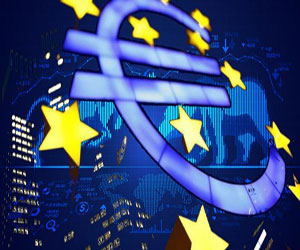On 27 June 2022 the Council of the European Union adopted a Regulation to secure that gas storage capacities in the EU are filled before the winter season and can be shared between member states in a spirit of solidarity. The Regulation – which is expected to enter into force in the next weeks - introduces new ‘filling targets’. Underground storage must be filled to at least 80% of capacity before the winter of 2022/2023 and to 90% before the following winter periods. Overall, the EU will attempt collectively to fill 85% of the total underground gas storage capacity in the EU in 2022. Member states who do not have storage facilities on their national territories are expected to ensure that operators on their territory have secured storage in a neighbouring Member State which covers 15% of their annual gas consumption. Alternatively, Member States without storage capacity can put in place a burden-sharing mechanism.
Given that supplies of Russian gas to various Member States as well as gas companies are being drastically cut, the EU considers that storage buffers need to be put in place urgently. Member states are given a considerable range of options on how to meet these targets but several possible measures from the menu are worthy of comment from an EU competition law and policy angle. One set of optional measures concerns granting various forms of state aids. For example, the Dutch government is setting up a guarantee scheme to encourage companies to storge gas. Under the scheme, it will reimburse the difference between current gas prices and gas prices next winter. In this way the government will assume part of the price risk. The estimated total cost of the measure is €623 million, depending on gas prices. It will be recovered, by means of an extra levy, from gas consumers who profit from the filling of the gas storage facilities. Germany will provide an additional 15 billion euros ($15.8 billion) in credit lines for the purchase of gas to replenish storage facilities. The additional credit lines will enable Germany's gas market operator, Trading Hub Europe (THE), to fill up storage levels faster, meeting a key strategic target to ensure Germany can get through the winter should Russian supplies stop altogether. The Austrian Federal Government has devised a €6.6 billion plan to ensure the country has enough storage of natural gas by autumn. Pursuant to Article 107(3)(b) TFEU the Commission may declare compatible with the internal market aid ‘to remedy a serious disturbance in the economy of a Member State’.
To further incentivise the refilling, the Commission also noted in its RePowerEU Communication that Member States can provide aid to suppliers under Article 107(3)(c) TFEU, including in the form of guarantees (e.g., two-way contracts for difference). Hence these types of national support measures are – following notification and assessment by the Commission – likely to be approved by it. This gives legal certainty to the potential state aid recipients at least.
However, it is not at all clear that this will be enough. The head of the German regulatory authority - the BNETZA- has however warned that even if Germany's gas storage facilities were 100% filled it would only last for 2.5 months if Russia were to stop supplies completely. So what other instruments are available?
Joint Platforms
Importantly the new Regulation also gives the Member States the option to use coordinated instruments, such as platforms for the purchase of LNG, with other Member States, and/or to use voluntary mechanisms for the joint procurement of natural gas (Article 6b). The latter type of policy tool is not entirely new – joint purchasing arrangements have been considered in the past, for example in relation to US LNG exports in 2016 and exports of natural gas from the Caspian in 2010.
But this ‘tool’ has resurfaced earlier this year when the Commission launched plans for an ‘EU Energy Platform”, to establish bilateral negotiations with major gas producers, including a new EU-US partnership. The United States will export additional LNG volumes of at least 15 bcm in 2022, with the goal of approximately 50 bcm/year until at least 2030. For its part, the European institutions had committed to an urgent upgrade of the EU regulatory framework for energy storage.
Less Legal Security?
The new storage Regulation comes with the express caveat that the optional measures on platforms and joint procurement ‘shall not unduly distort competition or the proper functioning of the internal market in gas or endanger the security of gas supply of other Member States or of the Union’. This is indeed the ‘elephant in the room’. How can the functioning of the internal gas market be guaranteed if various forms of co-ordination are introduced on the buying side? What is the impact on consumer gas prices likely to be? Are energy companies likely to sign up to these new Commission-led initiatives? Energy companies – whether buyers or sellers – intending to collaborate with an LNG purchasing platform or with any other voluntary mechanism for the joint procurement of natural gas are still be expected to undertake a self-assessment to ensure full compliance with EU competition law. Compliance with Article 101 and 102 TFEU remains their full responsibility irrespective of the urgency of the current EU gas supply situation.
The new Regulation on gas storage also indicates that the EC may, if necessary, issue guidance on establishing joint purchasing by 1 August 2022. That guidance - if and when - issued will probably be only informal – it cannot supersede the EU Treaty rules on competition. In this context it is also interesting to note that the draft of the EC’s Horizontal Guidelines on the application of Article 101 TFEU to agreements between competitors has also introduced a new section explaining the distinction between joint purchasing and buyer cartels.
Although “joint purchasing arrangements” “normally do not amount to a restriction of competition by object if they truly concern joint purchasing” (cfr. here and here), the criteria for that assessment will depend in part on whether the collaboration would be classified as joint purchasing or might be deemed to be a nascent buyer’s cartel under EU competition law. Companies must then assess the difference for themselves. They must also be aware of the sanctions – in the form of high fines - that could attach to collaboration that could potentially allow a platform or any other form of joint procurement mechanism to fix prices and/or share markets or customers.
The new storage Regulation adopted on 27 June will probably do little to alleviate price rises or attract higher volumes of gas to Europe, but it is a timely reminder that the EU – and indeed many other European countries – are having to draw up rapid plans in anticipation of a major disruption of gas supplies this coming winter.
Per rimanere aggiornato sulle novità di EUblog iscriviti alla Newsletter!






















